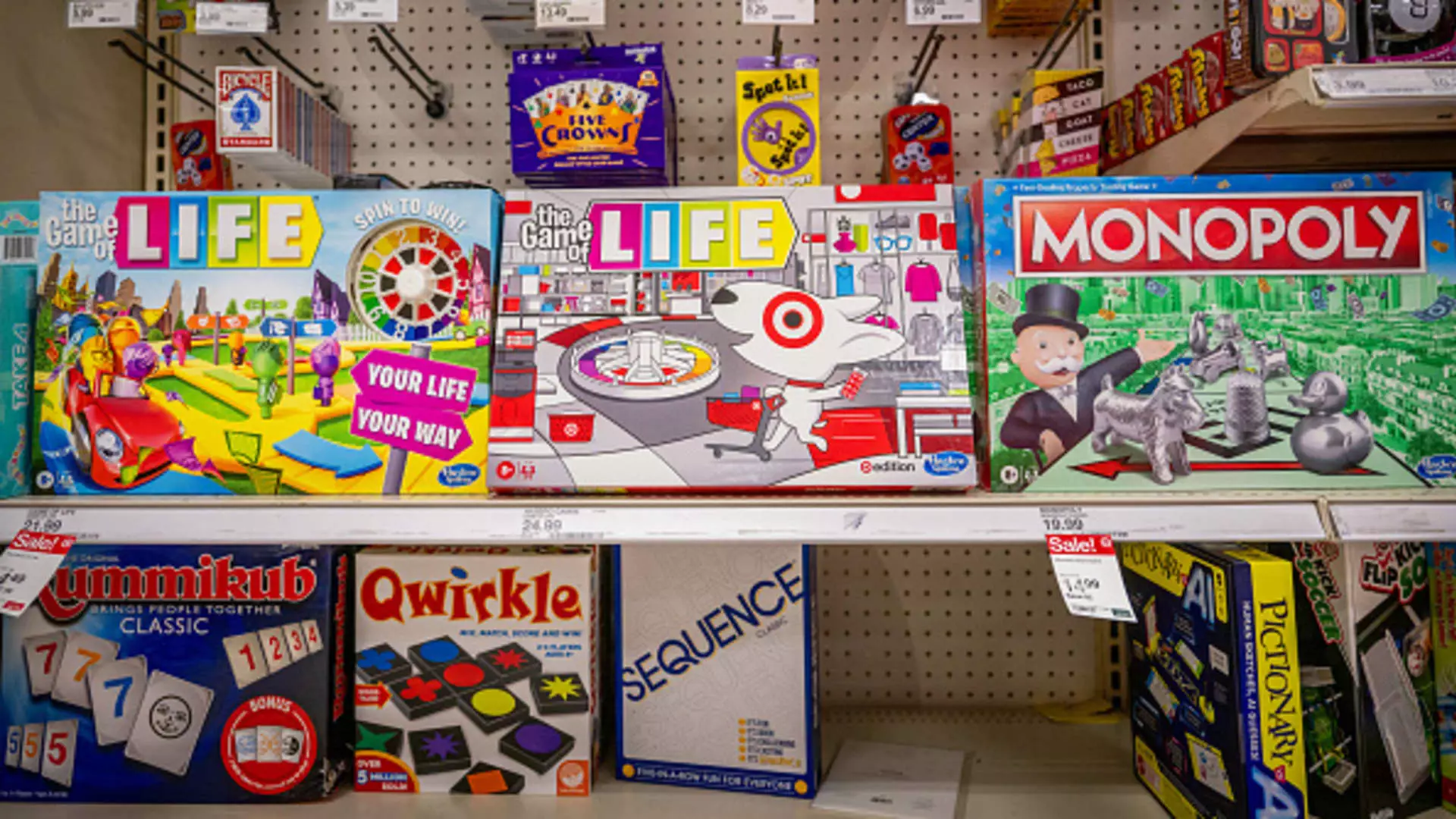In an age where toys and entertainment are increasingly interwoven with global commerce, the impact of political decisions on the toy industry cannot be underestimated. The current trade war, spearheaded by the Trump administration, has far-reaching implications—especially for companies like Hasbro. A proposed 145% tariff on imports from China threatens to unleash chaos on the company’s financial standing, projecting potential losses of up to $300 million. This situation highlights a disturbing reality: the intersection of politics and consumerism often leads to unintended repercussions for everyday citizens who enjoy the very products these decisions affect.
Despite releasing better-than-anticipated earnings reports, Hasbro’s optimistic facade belies a deeper tension and uncertainty within the company. The stark reality is that while financial numbers can sometimes mask the decay beneath, the broader implications—in this case, rising prices and potential job losses—remain glaringly evident. CEO Chris Cocks starkly points out the inevitability of increased costs as a direct result of tariffs, a sentiment that should send shivers down the spine of consumers and shareholders alike.
The Expensive Cost of Political Ambitions
Delving deeper into the fiscal machinations of Hasbro reveals a complex network of dependencies on China—particularly evident in their toy segment. Unlike their games division, which has comparatively lower exposure to tariff fluctuations, the toy segment finds itself vulnerable to unpredictable outcomes as a significant percentage of their products are manufactured in China. This tangled web of reliance sheds light on a concept seldom discussed in economic forums: the real cost of protectionism. As tariffs intensify, businesses must grapple with not only elevated manufacturing expenses but also a potential crippling of various segments, forcing reprioritization and a reconsideration of logistics.
Hasbro’s response to the current predicament encapsulates a realization that may elude many in power: shifting manufacturing to alternative countries, such as Turkey, complicates the supply chain and drastically raises operational costs. For an industry reliant on thin margins, this could present an existential crisis. The inherent irony lies in the fact that, rather than safeguarding American jobs, the continued implementation of these tariffs threatens to erase them altogether as companies scramble to keep their operations afloat amidst spiraling costs.
A Token of Flexibility Amidst Chaos
It’s commendable that Hasbro is exploring flexible manufacturing strategies, but can strategic ambivalence alone effectively shield them from such drastic economic shifts? The proclamations made during earnings calls are somewhat prophetic—while Cocks has assured that the company is “well-positioned,” the truth behind this statement is questionable. The trade environment remains profoundly unpredictable, rendering any long-term business strategy tenuous at best.
The push to implement a $1 billion cost savings initiative as a countermeasure to tariff-related pressures may provide temporary relief, but must ultimately be regarded with skepticism. Price hikes are seemingly inevitable as companies grapple to sustain profits amid rising costs, inadvertently passing the financial burden onto consumers. This trend could alienate loyal customers who have long cherished the brand.
The Human Element In The Balance
Moreover, beyond the economic ramifications lie societal consequences that should not be overlooked. As Cocks and CFO Gina Goetter acknowledge potential job losses, we are reminded that those impacted are not mere numbers on a spreadsheet but real individuals whose livelihoods could falter under the weight of political miscalculations. The delicate fabric of communities that enjoy these products hangs in the balance, revealing that a company’s financial health has far-reaching implications that extend into the everyday lives of families.
While Hasbro attempts to “play both defense and offense” in this tactical dance with tariffs, one must question whether such strategies will yield genuine stability or merely provide a temporary buffer against an ever-evolving landscape. The reality faced by these companies often calls for pragmatism over idealism, leaving consumer sentiment vulnerable as they get caught in political crossfire, unable to influence policies that ultimately shape their purchasing decisions.
The impending uncertainty in U.S. trade policies remains worrisome, but the hope for a more civilized and predictably favorable trade environment hangs like a fragile thread. As political decisions continue to ripple through the economy, we must remain vigilant to the broader repercussions of such a volatile approach to trade.


Leave a Reply